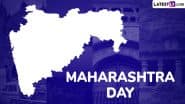New Delhi, Apr 30 (PTI) The Centre's announcement that caste enumeration will be included in the next census can prove to be a critical step towards building a more inclusive and equitable public policy, development practitioners and policy experts said on Wednesday, but stressed that its real value would lie in how meaningfully the data is used.
In a major decision, the Centre on Wednesday announced that caste enumeration will be included in the next census exercise in a "transparent" manner and slammed opposition parties for using caste surveys as a "political tool".
Poonam Muttreja, executive director of Population Foundation of India, emphasised the need to address the structural inequalities that affect access to services like education, healthcare and social protection.
"Access to reproductive health services, for example, is shaped not just by gender but also by where a woman lives, her caste, community and income level," she said.
According to Muttreja, a caste census is vital to uncovering such intersectional disparities and crafting truly-inclusive policies.
Union minister Ashwini Vaishnaw criticised the previous efforts of some opposition-ruled states, such as Bihar, Telangana and Karnataka, claiming that they got such surveys conducted "non-transparently", which created doubts in the society.
However, many civil society voices argue that the national-level caste data is long overdue.
Jitendra Pandit, associate director, governance, Transform Rural India (TRI), said Panchayati Raj Institutions (PRIs) could benefit significantly from disaggregated caste data.
"PRIs sit at the heart of rural development efforts and caste-based data would allow them to design programmes that address the unique geographic, demographic and social needs of local communities," he told PTI.
Shrish Kalyani, also an associate director at TRI, highlighted the broader implications for governance.
"Caste-disaggregated data is not just another statistic. It is the key to understanding the complex challenges faced by the most marginalised -- the likes of Dalits, Adivasis and rural women," he said.
With this knowledge, Kalyani said, local governance can become more compassionate and responsive.
Experts agree that meaningful data is essential for tailoring development strategies that go beyond a one-size-fits-all approach.
Such data would allow both state and local governments to "develop programmes that are tailored to the real needs of our communities", Kalyani said.
A caste census is a survey conducted to collect detailed data on the various castes within a population, typically aimed at understanding the socio-economic conditions and demographic distribution of different caste groups.
(This is an unedited and auto-generated story from Syndicated News feed, LatestLY Staff may not have modified or edited the content body)













 Quickly
Quickly














